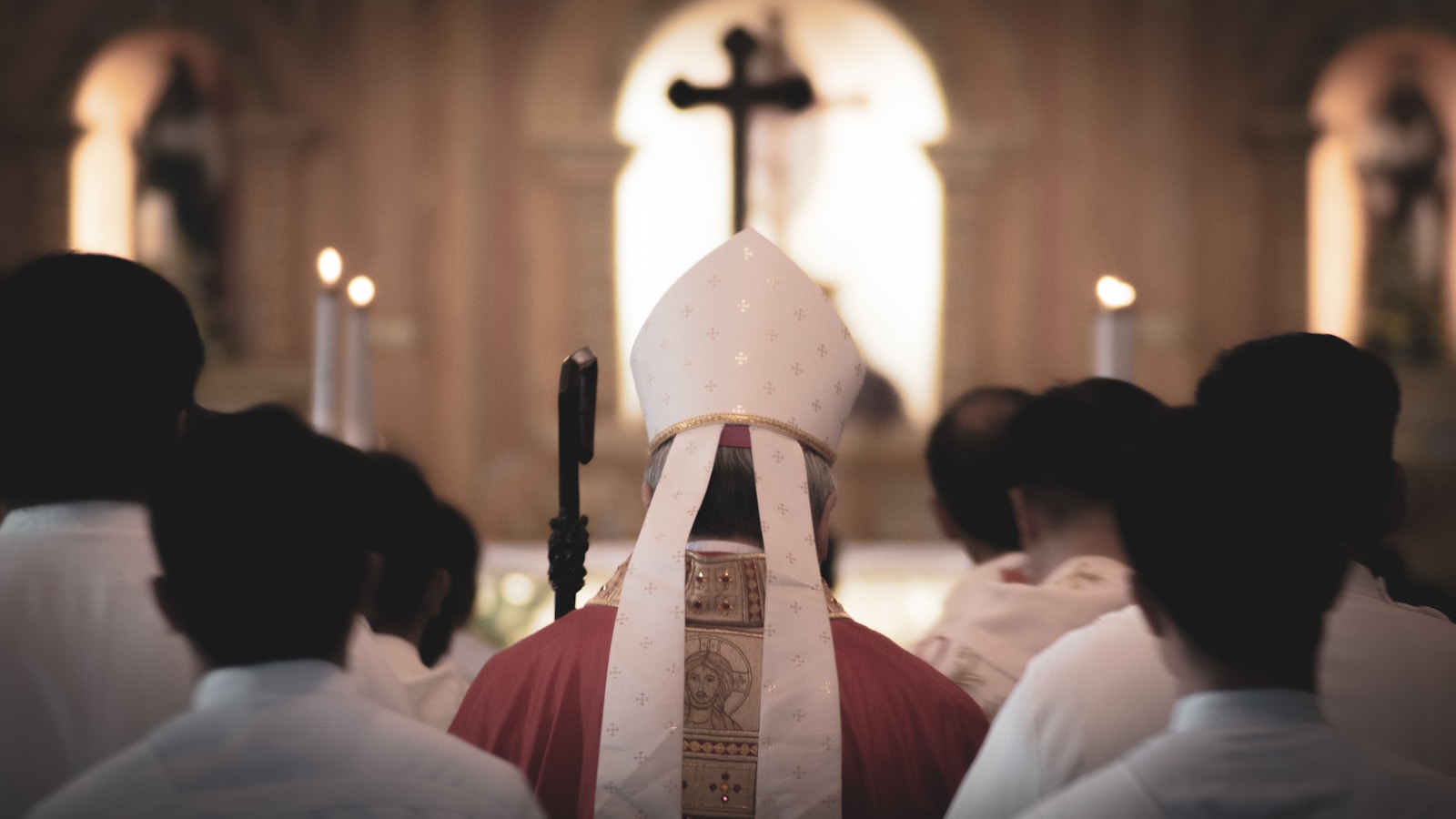The use of the term ‘Father’ for priests dates back centuries to early Christianity. It is believed to have originated from the teachings of Jesus, who referred to God as ‘Father’ and himself as the ‘Son of God’. As the early Christian community evolved, the term ‘Father’ began to be used to address spiritual leaders, symbolizing their role as spiritual fathers to their congregation.
Historical Context
Early Christian Practices
In the early days of Christianity, the nascent community was heavily influenced by Jewish traditions, which included addressing elders and leaders with terms of respect. The title ‘Father’ was not solely a Christian invention but a continuation of these traditions. As Christianity spread throughout the Roman Empire, the term gained broader acceptance, transcending cultural barriers and uniting diverse congregations under a common spiritual language.
Influence of Jewish Tradition
Jewish customs emphasized respect for elders as seen in the Hebrew Scriptures, where figures such as Abraham and Moses were often referred to with titles that conveyed respect and authority. This cultural norm naturally transitioned into the burgeoning Christian communities who looked to these figures as spiritual forebears.
Adoption in Early Christian Writings
Early Christian writings, such as those of the Apostolic Fathers, further entrenched the use of paternal titles. Writings from figures like Ignatius of Antioch and Clement of Rome often referred to church leaders as ‘fathers,’ highlighting their role in nurturing and guiding the early Church.
Development through the Middle Ages
During the Middle Ages, the Catholic Church began to formalize many of its traditions and titles. The use of ‘Father’ for priests became more institutionalized as the Church sought to establish clear hierarchies and roles within its structure. This period also saw the rise of monasticism, where abbots were commonly referred to as ‘Father,’ further entrenching the term in religious practice.
The Role of Monastic Communities
Monastic communities played a significant part in preserving Christianity during tumultuous times. Monks, and particularly abbots, were seen as spiritual leaders, embodying the paternal role through their guidance and teaching. Their influence extended beyond the monastery, reaching into the broader community and reinforcing the title ‘Father’ as a marker of wisdom and leadership.
Institutionalization of Clerical Titles
As the Church grew in power and influence, it became necessary to create a more organized clerical structure. The title ‘Father’ helped to demarcate roles and establish a recognizable hierarchy within the Church, which was essential for maintaining order and discipline.
Symbol of Authority and Guidance
The Role of Priests in Spiritual Leadership
Calling priests ‘Father’ is a way to acknowledge their authority and guidance within the church. Just as a father provides care, direction, and support to his children, priests are seen as shepherds guiding their flock towards spiritual growth and salvation. The title signifies a sense of respect and reverence towards the priest’s role in leading the community in matters of faith and morality.
The Priest as a Shepherd
The metaphor of the priest as a shepherd is deeply ingrained in Christian theology. A shepherd’s duty is to care for his sheep, guiding them to safety and sustenance. Similarly, priests are expected to guide their parishioners, providing spiritual nourishment through the sacraments and teachings of the Church.
Practical Examples of Priestly Guidance
Consider Father Michael, a parish priest in a small town. His role extends beyond conducting Sunday Mass. He is a confidant to many, offering advice on personal and spiritual matters. When a family in his parish faces hardship, Father Michael is there to provide support, organize community assistance, and offer prayers. His actions exemplify the guidance and care associated with the title ‘Father.’
Community Engagement and Support
Father Michael’s involvement in community activities, such as organizing food drives or hosting support groups, illustrates how priests can embody the paternal role. By actively participating in the lives of parishioners, priests like Father Michael build trust and reinforce their role as spiritual leaders.
Mistakes to Avoid in Spiritual Leadership
Priests, like all humans, are not infallible. A common mistake is becoming too authoritarian, forgetting that their role is one of service. Effective spiritual leadership requires humility and an openness to listen, rather than simply dictate. Priests must balance authority with compassion, ensuring their leadership fosters growth and understanding rather than fear or resentment.
Overcoming Authoritarian Tendencies
To avoid authoritarianism, priests should engage in regular self-reflection and seek feedback from their congregations. Encouraging open dialogue and creating spaces where parishioners feel comfortable voicing concerns can help priests maintain a balanced approach to leadership.
The Paternal Role of Priests
Building a Familial Bond with Parishioners
The title ‘Father’ emphasizes the paternal role that priests play in the lives of their parishioners. They are called to offer pastoral care, support, and wisdom to the members of their congregation, much like a father nurtures and protects his children. The title ‘Father’ conveys a sense of familial bond and intimacy between the priest and the faithful, fostering a relationship based on trust and spiritual guidance.
Creating a Sense of Belonging
By fostering a family-like atmosphere, priests can help parishioners feel a sense of belonging and community. This is particularly important in today’s fast-paced world, where individuals often feel isolated. Priests can facilitate this by organizing community events, such as potlucks or retreats, where parishioners can connect and build relationships.
Real-Life Illustrations
Father James, serving in an urban parish, organizes weekly youth group meetings. These gatherings provide a safe space for teenagers to discuss their challenges and seek guidance. By actively participating in their lives, Father James strengthens the community’s bond, creating a supportive network akin to an extended family.
Youth Engagement and Mentorship
Father James’s approach to youth ministry highlights the importance of mentorship in the Church. By taking an active interest in the younger members of his parish, he helps them navigate the complexities of adolescence, reinforcing the Church’s role as a source of guidance and support.
Avoiding Common Pitfalls
While fostering close relationships, priests must maintain professional boundaries. Overstepping these can lead to favoritism or perceived bias, undermining their role. It’s crucial for priests to remain impartial, ensuring all parishioners feel equally valued and supported.
Maintaining Professional Boundaries
To avoid potential pitfalls, priests should set clear boundaries regarding their interactions with parishioners. This includes being transparent about the nature of their relationships and ensuring that all parishioners have equal access to their time and resources.
Theological Basis for the Title
Biblical References and Interpretations
The New Testament provides numerous references that support the paternal imagery. In 1 Corinthians 4:15, Paul writes, “For though you have countless guides in Christ, you do not have many fathers. For I became your father in Christ Jesus through the gospel.” This passage highlights the idea of spiritual parenthood, reinforcing the legitimacy of the title.
Exploring Scriptural Foundations
Many passages in the New Testament emphasize the spiritual fatherhood of church leaders. For instance, in 1 Timothy 5:1, Paul advises Timothy to treat older men as fathers, again underscoring the familial aspect of Church leadership. These scriptural foundations provide a theological basis for the title ‘Father.’
The Role of Tradition in the Church
Tradition plays a crucial role in the Catholic Church. While scripture provides a foundation, tradition shapes the Church’s practices and customs. The use of ‘Father’ is a testament to how tradition and scripture intertwine, creating a rich tapestry that supports the Church’s teachings and community structure.
Tradition as a Living Practice
Tradition is not static; it evolves as the Church grows and faces new challenges. The ongoing use of the title ‘Father’ demonstrates how tradition adapts to meet the needs of contemporary congregations while maintaining a connection to the past.
Cultural Variations and Ecumenical Considerations
Differences Across Denominations
While the Catholic Church widely uses the term ‘Father,’ other denominations have different practices. Orthodox priests are also referred to as ‘Father,’ but in Protestant denominations, the term may be less common, with titles like ‘Pastor’ or ‘Reverend’ being preferred. These variations reflect theological differences and cultural contexts within Christianity.
Understanding Denominational Differences
Each denomination’s use of clerical titles reflects its unique history and theology. For instance, the Protestant Reformation emphasized a more personal relationship with God, which is reflected in titles that focus on pastoral care rather than clerical hierarchy.
Ecumenical Dialogue and Mutual Respect
In interfaith dialogues, understanding these differences is vital. Respecting each denomination’s titles and traditions fosters mutual respect and cooperation. When Catholics interact with other Christian communities, acknowledging these variations can lead to more meaningful and respectful exchanges.
Building Bridges Across Faiths
Ecumenical efforts often focus on finding common ground while respecting differences. By recognizing the significance of titles like ‘Father’ in various traditions, Christian communities can work towards greater unity and understanding.
Modern Perspectives and Challenges
The Evolution of the Role in Contemporary Society
Today’s priests face new challenges and opportunities. The digital age offers platforms for reaching broader audiences, but it also demands that priests remain relevant and accessible. Maintaining the ‘Father’ role involves adapting to contemporary issues while upholding traditional values.
Embracing Technology
Priests can leverage technology to connect with parishioners in new ways. Social media platforms, podcasts, and live-streamed services allow priests to engage with a wider audience, providing spiritual guidance and community support in a digital format.
Addressing Modern Issues
Priests today must address issues like mental health, social justice, and the role of the Church in modern society. This requires continuous education and a willingness to engage with contemporary debates. By doing so, priests can better serve their communities, ensuring the Church remains a vital and supportive presence in people’s lives.
Engaging with Social Justice
Modern priests are increasingly called to address social justice issues, such as poverty, inequality, and environmental stewardship. By actively participating in these discussions, priests can help highlight the Church’s commitment to compassion and justice.
Engaging with Youth and Diverse Communities
Reaching younger generations and diverse communities requires innovation and inclusivity. Programs that incorporate technology, like virtual Bible studies or social media outreach, can engage younger parishioners. This adaptability is crucial for maintaining the relevance and effectiveness of the priest’s role as ‘Father.’
Cultivating Inclusive Communities
Creating spaces where all feel welcome is crucial for the Church’s future. Priests can foster inclusivity by promoting diversity within parish leadership, celebrating cultural differences, and ensuring that all parishioners feel valued and heard.
In summary, the title ‘Father’ for priests is deeply embedded in historical, cultural, and theological contexts. It represents a tradition of spiritual leadership, paternal care, and community building. As society evolves, so too must the role of priests, ensuring they continue to guide their congregations with wisdom, compassion, and love.




